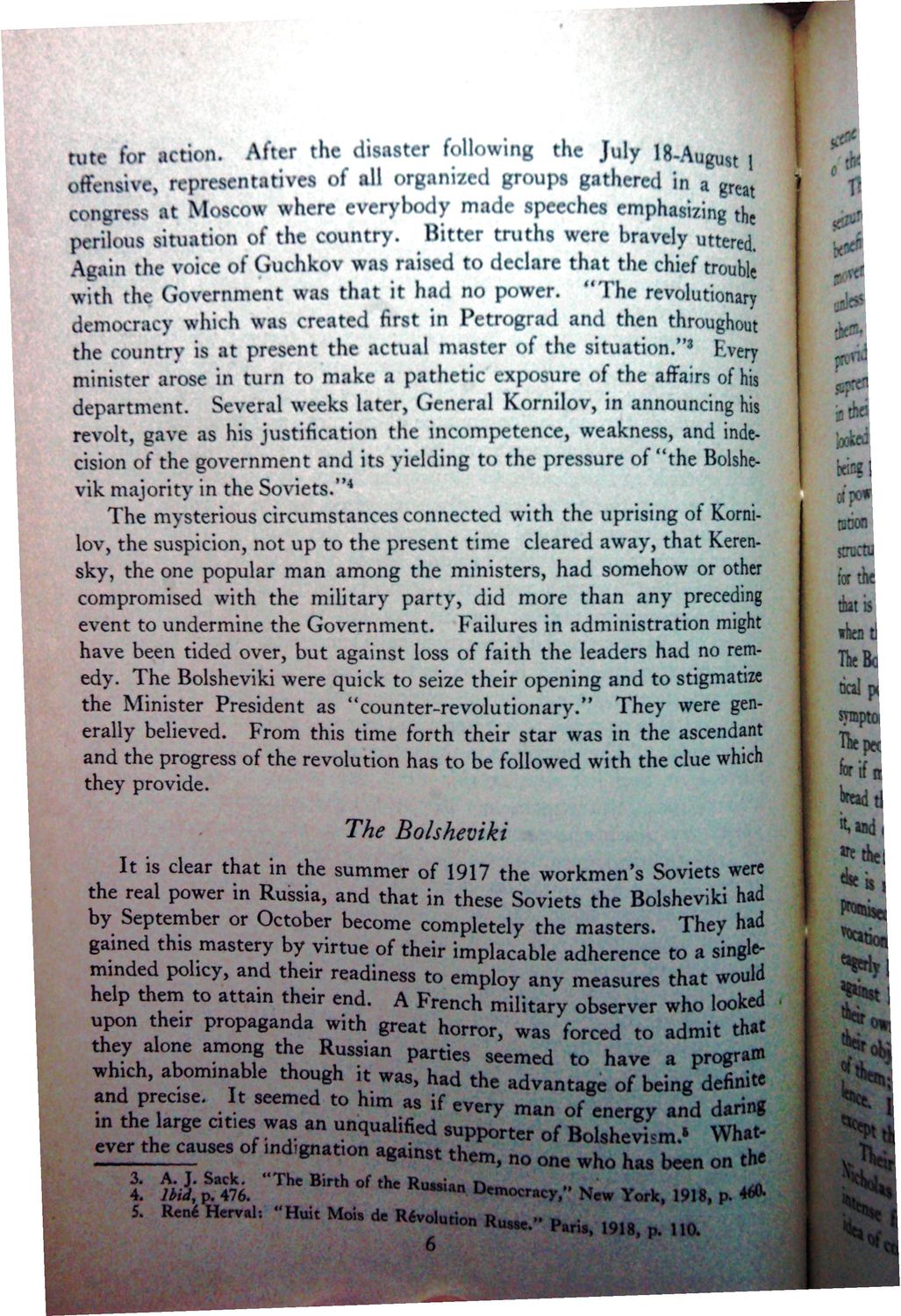| |
| |
Caption: War Publications - WWI Compilation 1923 - Article 22
This is a reduced-resolution page image for fast online browsing.

EXTRACTED TEXT FROM PAGE:
» tt.ro for action. After the disaster following the July 18-August l representatives of all organized groups gathered in a great congress at Moscow where everybody made speech perilous situation of the country. Hitter truths were bravely uttered. Again the voice of Guchkov was raised to declare that the chief trouble with the Government was that it had no power. "The revolutionary democracy which was created first in Petrograd and then throughout 3 the country is at present the actual master of the situation." Every minister arose in turn to make a pathetic exposure of the affairs of his department. Several weeks later, General Kornilov, in announcing his revolt, gave as his justification the incompetence, weakness, and indecision of the government and its yielding to the pressure of "the Bolshe4 vik majority in the Soviets." The mysterious circumstances connected with the uprising of Kornilov, the suspicion, not up to the present time cleared away, that Kerensky, the one popular man among the ministers, had somehow or other compromised with the military party, did more than any preceding event to undermine the Government. Failures in administration might have been tided over, but against loss of faith the leaders had no remedy. The Bolsheviki were quick to seize their opening and to stigmatize the Minister President as "counter-revolutionary." They were generally believed. From this time forth their star was in the ascendant and the progress of the revolution has to be followed with the clue which they provide. The Bolsheviki It is clear that in the summer of 1917 the workmen's Soviets were the real power in Russia, and that in these Soviets the Bolsheviki had by September or October become completely the masters. They had gained this mastery by virtue of their implacable adherence to a singleminded policy, and their readiness i-n ^m^l«„ „.,,. „. «, *kaf wnuld help them to attain their end. looked upon their propaganda with great horror, was forced to admit that they alone among the Russian parties seemed to have a program which, abominable though it was, had the advantage of being definite and precise. It seemed to him as if every m a „ 0 f energy and daring in the large cities was an unqualified supporter of Bolshevism.* Whatbeen 3. A. J. Sack. "The Birth of the RUM!™ n . A KUMIiln D 4. Ibid, p. 476. *mocracy," New York, 1918, p. 46ft 5. Rene - u n o n Kusse." P a r i s , , 9 1 8 > ,,. , 1 0 . 6
| |